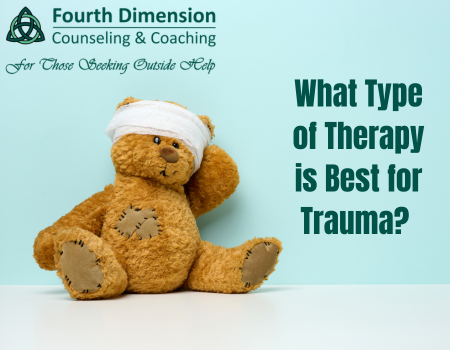Trauma can leave lasting scars, impacting our emotions, behaviors, and relationships. It can stem from a single, shocking event like a car accident or a natural disaster, or from repeated experiences like childhood abuse or neglect. Regardless of the source, trauma can feel overwhelming and leave you wondering – what type of therapy is best for healing?
The good news is, there’s no single “best” therapy for trauma. Several evidence-based approaches can offer significant relief and empower you to move forward. The key lies in finding the right fit for your unique needs and experiences.
Understanding Trauma Therapy
Trauma therapy is a special kind of therapy that helps people heal from traumatic experiences. It differs from traditional talk therapy by creating a safe and supportive environment where individuals can explore their trauma at their own pace.
Here are some hallmarks of effective trauma counseling:
 Psychoeducation: The therapist provides information about trauma, its effects, and how to manage symptoms. This knowledge helps validate your experiences and equips you to understand what you’re going through.
Psychoeducation: The therapist provides information about trauma, its effects, and how to manage symptoms. This knowledge helps validate your experiences and equips you to understand what you’re going through.- Validation and Support: Trauma can make you feel isolated and misunderstood. Trauma therapy validates your feelings and creates a space for you to feel heard and supported in your healing journey.
- Skills Development: You’ll learn coping mechanisms to manage triggers, anxiety, and emotional responses. This might involve relaxation techniques like deep breathing or mindfulness exercises, or building communication skills to navigate difficult relationships.
- Processing Memories: Some trauma therapies may explore traumatic memories in a safe and controlled way. This is not about forcing you to relive the trauma in detail, but rather to help you integrate the memories and decrease their emotional hold on you. Techniques like EMDR (Eye Movement Desensitization and Reprocessing) can be particularly helpful in this regard.
- Empowerment: Trauma can leave you feeling helpless. Trauma therapy aims to empower you to take control of your healing, rebuild your confidence, and reclaim your sense of agency in life.
Exploring Different Treatment Options
No single approach works for everyone. Here’s an overview of some popular trauma therapies:
- Cognitive Processing Therapy (CPT): This therapy focuses on identifying and challenging negative thoughts and beliefs associated with the trauma.
- Prolonged Exposure Therapy (PE): PE involves gradually confronting traumatic memories in a safe environment to decrease their emotional impact.
- Eye Movement Desensitization and Reprocessing (EMDR): EMDR uses bilateral eye movements, tapping, or other forms of stimulation alongside exposure to traumatic memories to help reprocess and integrate them.
- Trauma-Focused Cognitive Behavioral Therapy (TF-CBT): This therapy is specifically designed for children and adolescents who have experienced trauma and incorporates skills training for parents or caregivers.
- Dialectical Behavior Therapy (DBT): DBT is often used in conjunction with other trauma therapies and focuses on developing healthy coping mechanisms for managing overwhelming emotions.
- Somatic Therapy: Somatic therapy focuses on the connection between the mind and body and uses techniques like mindfulness and bodywork to address physical symptoms associated with trauma.
Finding the Right Therapist for You
With so many options, how do you find the right trauma counseling for you? Here are some important factors to consider:
- Your specific needs: Different trauma therapies address different aspects of recovery. Consider what resonates with you, whether it’s challenging negative thought patterns or addressing physical manifestations of trauma.
- Expertise: Look for a therapist who is good at treating trauma and has experience working with people who have been through what you’ve been through. At Fourth Dimension Counseling, we have a team of experienced therapists who can connect you with a specialist who meets your specific needs. We offer both in-person and online therapy options.
- The therapeutic approach: Research different therapy modalities and discuss them with potential therapists to see which approach feels most comfortable for you.
- The therapeutic relationship: The connection with your therapist is crucial. Choose someone you feel comfortable with, someone who listens without judgment and creates a safe space for you to explore your experiences.
Beyond Therapy: Supporting Your Healing Journey
Trauma counseling is a powerful tool for healing, but it’s not a one-size-fits-all solution. Here are some additional ways to support your recovery:
- Self-care: Prioritize activities that promote well-being, such as healthy sleep habits, exercise, and relaxation techniques.
- Support network: Surround yourself with supportive friends, family members, or a support group who understand what you’re going through.
- Healthy lifestyle: Maintain a balanced diet, manage stress effectively, and seek professional help for any co-occurring mental health challenges.
Recovery from trauma is a gradual process, not an immediate outcome. It requires time, perseverance, and necessary assistance.With the right support, you can find strength after trauma and create a more fulfilling life. Fourth Dimension Counseling provides counseling services to help you heal from traumatic experiences.
